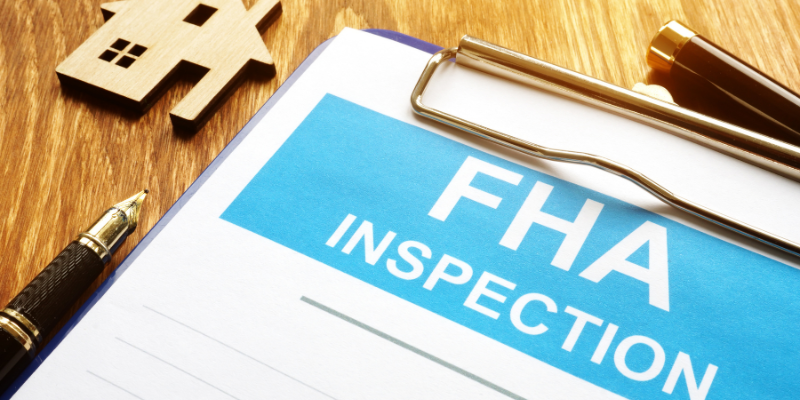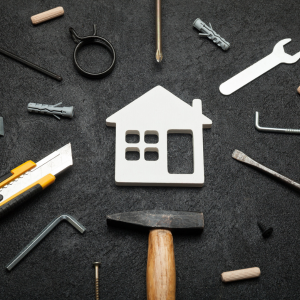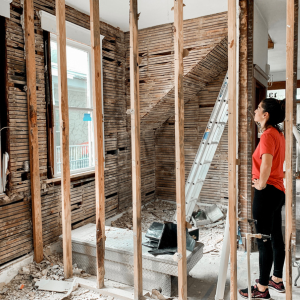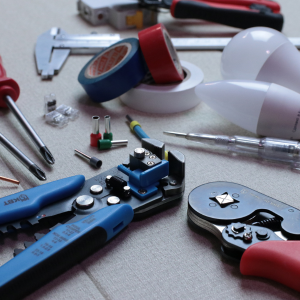
FHA Required Repairs in Minneapolis, MN: Understanding FHA Repair Requirements
Navigating the real estate market can feel overwhelming, especially when it comes to understanding FHA-required repairs in Minneapolis, Minnesota. These repairs ensure that a property meets Federal Housing Administration standards, protecting both lenders and potential homeowners. Whether you are a buyer or a seasoned realtor, knowing these requirements is essential for a smooth and successful transaction. By familiarizing yourself with FHA guidelines, you’ll be better prepared to meet the criteria, leading to a favorable appraisal and financing process. For those seeking flexible options, working with cash home buyers in Minneapolis and surrounding Minnesota cities can also make it easier to address repairs and move forward with confidence. Continue reading to explore what’s required to meet FHA standards in Minneapolis.
Understanding FHA Required Repairs in Minneapolis

When buying a Minneapolis home, it is critical to understand FHA repair requirements. These provisions ensure that the property meets health and safety requirements prior to financing approval. Minneapolis homes with FHA loans must adhere to specific guidelines. FHA prioritizes properties that are “safe, sound, and secure,” which may necessitate a variety of repairs depending on local architectural trends and weather conditions. We’ll analyze real estate dynamics to better understand FHA requirements and common repairs. This understanding can greatly simplify the home-buying process and help you invest wisely in Minneapolis’ thriving real estate market.
Key FHA Repair Requirements in Real Estate
FHA repair requirements are essential for ensuring that properties are safe, livable, and free of major flaws. The FHA requires that homes be structurally sound, free of moisture, and equipped with functional utilities. Inspections and repairs for roofing and waterproofing are common in Minneapolis, where the climate frequently causes moisture problems.
Another critical factor is the proper operation and safety of major systems such as heating, plumbing, and electrical components. These must all meet FHA standards and be in good working order, as malfunctioning systems endanger occupants and jeopardize overall home safety. For Minnesota homeowners, ensuring that these systems can withstand harsh winters is especially important.
Structural integrity is also an important consideration in FHA approval. Foundations, walls, and floors must be free of significant damage or weaknesses, as even minor cracks can worsen during severe winter weather. FHA appraisers frequently recommend repairs in these areas to ensure the home’s longevity and stability. In addition, safety features like smoke detectors and handrails are required to protect occupants from potential hazards.
While cosmetic flaws are frequently overlooked, some visible issues must be addressed. Peeling paint, for example, in homes built prior to 1978 raises lead exposure concerns and necessitates remediation. This requirement is particularly important in Minneapolis, where many older properties still exist. By addressing FHA repairs comprehensively, homeowners not only meet federal standards but also increase property value, making homes safer and more appealing to buyers while maintaining FHA loan eligibility.
Navigating the FHA Appraisal Process
Understanding how the FHA appraisal process works is critical for speeding up home purchases in Minneapolis. This appraisal process determines whether properties meet Federal Housing Administration standards and identifies any necessary repairs. FHA appraisals, which prioritize safety and habitability, ensure that listed properties are sound investments. During their assessment, appraisers look for common issues that could affect a home’s loan eligibility. This enables homeowners to prioritize necessary repairs, thereby aligning property values with buyer expectations. Prospective buyers who understand the appraisal process can make informed decisions that meet both personal and FHA standards, ensuring a smooth purchasing experience.
Role of FHA Appraisal in Property Assessment
The FHA appraisal plays a vital role in real estate transactions, functioning as both a property evaluation and a determination of eligibility for FHA financing. Appraisers carefully inspect homes to verify that they meet the Federal Housing Administration’s “safe, sound, and secure” standards. In Minneapolis, where architectural styles and weather-related challenges can vary widely, these appraisals are especially important for uncovering and addressing potential property issues. If you’re navigating this process, it helps to understand how our process works, ensuring you’re better prepared for a smooth and successful transaction.
Aside from confirming market value, FHA appraisals determine whether a property meets critical safety and livability standards. This includes ensuring structural integrity, effective moisture control, and proper operation of critical systems like plumbing, heating, and electricity. Appraisers are responsible for ensuring that homes meet FHA lending criteria, making them secure and viable investments for buyers.
During the appraisal process, common issues are frequently identified for repair or adjustment. Moisture intrusion, which is common in Minneapolis due to the climate, and faulty heating or plumbing systems that do not meet FHA standards are major issues. Appraisers also focus on foundations and structural elements, as homes must be free of major flaws and structurally sound. By identifying these issues early, the appraisal protects both buyers and lenders.
Ultimately, the FHA appraisal is more than just a list of defects. It protects the investment. For buyers, it emphasizes necessary repairs that could be costly if ignored, while also instilling confidence in the purchase. For lenders, it confirms that the property is a good investment. FHA appraisals in Minneapolis promote transparency, protect long-term value, and contribute to smoother loan approval processes by providing a comprehensive view of the property’s condition.
Common Issues Identified During FHA Appraisals
Appraisers often highlight common loan-approval issues during FHA appraisals. These findings are important for buyers and sellers meeting FHA standards. Due to historic architecture and extreme weather, Minneapolis properties require special care. Moisture penetration is a common issue that can cause mold and structural damage. These issues must be identified and addressed during the appraisal to protect the home’s integrity and meet FHA standards.
Utility system condition is another major issue. Appraisers focus on heating in Minneapolis due to harsh winters. FHA and safety standards are violated by faulty heating systems. Because plumbing and electrical issues can be costly, they are also carefully inspected. Passing the appraisal requires these systems to be present, functional, and compliant with local codes.
FHA evaluations also consider structural soundness. Federal lending standards require strong properties beyond appearance. Older Minneapolis homes may have foundation cracks or weakened support structures that threaten safety and value. These issues often require major repairs and can affect FHA loan eligibility. Appraisers also check for FHA-mandated smoke detectors and secure handrails.
FHA appraisal concerns can be addressed to smooth transactions. Buyers learn about potential repairs and negotiate accordingly, while sellers learn how to make their property more competitive. Meet FHA requirements to secure financing and improve the home’s safety, durability, and market appeal, making it a better investment for everyone.
Minimum Property Standards for FHA Loans

FHA loans require specific minimum property standards to ensure that homes meet critical safety and health requirements. These standards ensure the property’s structural integrity and habitability for the buyer, protecting their investment by preventing common flaws. Understanding these standards allows buyers and sellers in Minneapolis to ensure that their properties are eligible for FHA loans, avoiding potential roadblocks. The emphasis is on property health, safety, and structural soundness, ensuring that each home meets the expectations of both the FHA and prospective buyers. Let’s look at how properties must comply with FHA property standards and meet minimum eligibility criteria.
Ensuring Property Meets FHA Property Standards
FHA property standards ensure livable and profitable homes. Minneapolis’s unique architecture and challenging weather make meeting these standards crucial. Before qualifying for FHA financing, a property must meet safety, security, and structural standards. After an FHA appraisal identifies issues and suggests improvements, compliance often begins.
The appraisal checks the foundation, roof, and construction quality to ensure the property is defect-free. Before approval, cracking foundations and leaky roofs must be addressed. These requirements safeguard buyers from costly repairs and reassure lenders of the home’s stability.
Essential utility functionality is also emphasized by FHA standards. The plumbing, heating, and electrical systems must work properly and meet local building codes. Given Minneapolis’s harsh winters, a reliable heating system is essential. To protect occupants, handrails and smoke detectors must be installed.
Environmental risks are also a key factor in FHA property evaluations. For instance, homes built before 1978 may contain lead-based paint, which must be properly addressed to meet FHA requirements. Taking this comprehensive approach ensures that properties remain safe, sustainable, and long-lasting investments. By complying with these standards, sellers can improve their marketability, while buyers gain peace of mind knowing their purchase is protected. For those navigating these requirements in Minneapolis, K&G Investments can help make the process smoother and more efficient.
Minimum Property Requirements for Eligibility
Qualification for FHA loans requires safe, secure, and structurally sound properties. These standards establish a property’s condition before loan approval to protect lenders and homeowners. Environmental and structural issues are common in Minneapolis, so including these requirements in property evaluations ensures long-term livability and safety.
Infrastructure integrity is emphasized in FHA minimum property requirements. The foundation, walls, and roof must be solid and free of cracks or leaks that could weaken them. In Minneapolis, where harsh weather can exacerbate structural weaknesses, stability is essential. To support daily life, water, sewer, and electricity must be reliable.
FHA standards scrutinize electrical and plumbing systems. To avoid shocks and fires, electrical wiring must be code-compliant, and plumbing systems must prevent water damage and mold. FHA safety and habitability requirements require a reliable heating system in Minneapolis, where winters can be harsh.
Environmental safety also influences FHA property evaluations. In older Minneapolis homes, radon, mold, and lead-based paint must be removed. Meeting these requirements increases resale value and marketability and secures loan approval. According to federal guidelines, FHA standards reassure buyers and sellers that their investment is protected, making property transactions safer.
Strategies to Address Required Repairs under FHA
Strategic planning is essential when dealing with FHA-required repairs to ensure compliance and protect the value of your property as an investment. Adopting effective strategies can assist homeowners in navigating the repair process and making informed decisions that are compliant with FHA guidelines. This entails prioritizing repairs and consulting with experts. By addressing necessary repairs and seeking professional advice, you increase property value and ensure FHA compliance, resulting in a safer and more desirable living environment for prospective Minneapolis buyers.
Tips for Prioritizing FHA Required Repairs

FHA-required repairs can be overwhelming, but a structured approach helps. Understand the FHA inspection’s critical areas first. Inspectors focus on structural integrity, health and safety, and major utility system functionality. In Minneapolis, where climate causes roof damage, foundation issues, and moisture problems, addressing urgent repairs first helps maintain FHA financing and property stability.
Health and safety must be the top priority when creating a repair plan. This includes replacing smoke detectors, securing handrails, and addressing lead-based paint in older Minneapolis homes. Ignoring these issues could lead to financing denial or occupant danger. After safety issues are resolved, homeowners can address structural or utility issues.
Utility systems are another FHA appraisal focus. FHA standards require working plumbing, heating, and electrical systems. Given Minneapolis’s harsh winters, a reliable heating system is crucial. Addressing these critical systems‘ issues quickly ensures compliance and property livability.
When scheduling FHA repairs, it’s important to factor in both cost and complexity. Reviewing the FHA inspection report allows homeowners to identify necessary fixes and estimate expenses. A smart approach may involve staging repairs, tackling urgent issues first, and completing others as the budget allows. By addressing FHA-required repairs carefully, homeowners not only meet federal standards but also boost the value of their Minneapolis property. This preparation ensures a smoother loan approval process and keeps the home safe, appealing, and market-ready. For added flexibility, working with investor home buyers in St. Paul and other cities in Minnesota can provide a faster path to selling, even if repairs are still pending.
| Repair Strategy | Professional Involvement | Key Repair Areas | Potential Challenges | Outcome & Benefits |
|---|---|---|---|---|
| Proactive Inspection | Home Inspectors | Structural Damage | Weather Conditions | Increases Property Longevity |
| Timely Maintenance | General Contractors | Roofing | Material Compatibility with Architecture | Preserves Property Value |
| Prioritize Health & Safety | Environmental Consultants | Mold and Lead Paint | Seasonal Constraints | Enhances Occupant Well-being |
| Compliance Assurance | FHA Coordinators | Electrical Systems | Regulatory Updates | Ensures Loan Approval |
| Flexible Budgeting | Financial Advisors | Plumbing | Cost Variability | Optimizes Repair Investment |
This table summarizes strategic approaches to executing FHA-required repairs, emphasizing the role of professional involvement and site-specific challenges in Minneapolis.
Engaging Professionals for FHA Repairs
Working with professionals on FHA repairs can speed up compliance. Certified inspectors and construction specialists ensure FHA-compliant repairs. Professional advice is essential in Minneapolis, where the weather and architecture are unique. These experts accurately interpret inspection reports, prioritize safety-related fixes, and oversee efficient execution to ensure FHA compliance.
Professionals also help homeowners understand FHA regulations and how they affect repairs. Their expertise ensures that plumbing, electrical, and structural systems meet local and FHA codes. To ensure FHA compliance in Minneapolis’ climate, plumbers can assess water systems. This technical knowledge reduces risks and ensures compliance.
In addition to technical expertise, professionals help with cost management, permits, and project timelines. They can fix minor and complex structural issues with reliable solutions that prevent future issues. Their involvement reduces noncompliance, protects property value, and supports FHA’s “safe, sound, and secure” mandate. Seasoned contractors improve home safety and durability by handling repairs properly.
Specialists improve repair and decision-making. Professionals help homeowners understand why certain repairs are needed and the risks of ignoring them, building buyer and seller trust. Professional repairs are more likely to meet or exceed FHA standards, ensuring buyer security. Proactive planning and professional involvement simplify Minneapolis FHA repair requirements, speeding loan approvals and improving property safety, habitability, and value.
FAQs:
What are the FHA required repairs in Minneapolis, MN?
FHA required repairs in Minneapolis focus on ensuring properties are “safe, sound, and secure.” Common repairs include addressing moisture issues, ensuring structural soundness, and verifying the functionality of essential systems like heating, plumbing, and electricity.
Why are moisture issues a concern for FHA appraisals in Minneapolis?
In Minneapolis, moisture issues are prevalent due to the regional climate. FHA appraisals emphasize resolving these problems to prevent mold and structural damage, aligning with health and safety standards.
How does the FHA appraisal process impact home buying in Minneapolis?
The FHA appraisal assesses whether a property meets Federal Housing Administration standards, identifying necessary repairs to ensure safety and habitability. This process aids buyers in making informed decisions and securing loan approval.
What steps should be taken to comply with FHA repair requirements?
Compliance involves identifying critical repairs such as structural integrity, utility systems functionality, and safety features. Engaging professionals for inspections and repairs ensures adherence to FHA standards.
Why is understanding FHA repair requirements important for real estate transactions?
Understanding FHA repair requirements is crucial for securing a favorable appraisal and financing. By aligning with these standards, buyers, and sellers can facilitate smoother transactions and safeguard their investments.
Helpful Minneapolis Blog Articles
- Selling Inherited Property With Multiple Owners In Minneapolis, MN
- Intriguing Real Estate Facts About The Twin Cities Housing Market
- Understanding FSBO Costs For Home Sellers In The Twin Cities
- How To Minimize Closing Costs In Twin Cities
- Sell Your House In The Twin Cities When Behind On Mortgage Payments
- FHA Mandatory Repairs in Minneapolis, MN
- Refinance a House After Divorce in Minneapolis, MN
- Inherited House with Sibling in Minneapolis, MN
- How to Stage a House for Sale in Minneapolis, MN
- Selling an Old House in Minneapolis, MN
- Selling a House With Solar Panels in Minneapolis, MN
- How Long Does an Eviction Process Take in Minneapolis, MN

